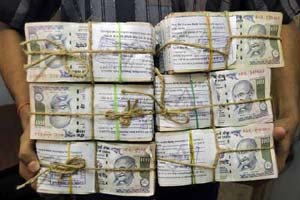With the announcement of Budget FY17, the department of revenue sought to expand the scope of taxable services in line with the proposed Goods and Services tax (GST). One such service proposed to be taxed was the services provided by the government or local authority to business entities, with effect from April 1, 2016. Various concerns were raised across the board to clearly understand what is to be taxed. For the sectors which largely deal with government such as infrastructure, oil and gas, mining and exploration, it was very crucial considering that the tax was on reverse charge methodology—the business entities receiving the services from government or local bodies had to comply with the payment of tax to the department.
Another proposal in the Budget was that assignment of the right to use the radio frequency spectrum and subsequent transfers thereof was considered as a declared service. This impacted the telecom sector.
Recently, the Central Board of Excise and Customs (CBEC) has clarified on various aspects. The clarification states that any activity undertaken by the government against a consideration constitutes service, even if such activity is undertaken as a statutory or mandatory requirement under any law. As long as a payment is made for getting a service in return, it will be regarded as ‘consideration for service’ and would be taxable. Service tax is also applicable on any payment, in lieu of any permission or license granted by the government. Taxes, cesses or duties are not consideration for any service, and hence, not subject to service tax. These taxes, cesses or duties include excise duty, customs duty, service tax, state VAT, central sales tax, income tax, wealth tax, stamp duty, taxes on professions, trades, callings or employment, Octroi, entertainment tax, luxury tax and property tax. Also, fines and penalty chargeable by the government for violation of a statute, bye-laws, rules or regulations are not subject to service tax. The circular has clarified that where natural resources were assigned before April 1, 2016, the periodical payments for use of such resources—spectrum user charges or license fees for spectrum or royalty paid on extracted coal—due after April 1, 2016, will be taxable.
Specified exemptions have been granted to issuance of passport, visa, driving license, birth certificate or death certificate. Also, for services, where the gross amount charged for the services does not exceed R5,000. It is also not available on continuous supply of services where the value of taxable services exceeds R5,000 per year. Further, no service tax will apply on charges for registration under any law. Also, assignment of right to use any natural resources, where such right was assigned before April 1, 2016, exemption has been granted. This exemption was available only on one-time charges payable, either upfront or in instalments. The licence fee or spectrum user charges for allowing a business entity to operate as a telecom service provider or to use radio-frequency spectrum during FY16 has also been exempted.
Service Tax Valuation Rules have been amended to provide for levy of service tax on interest chargeable on deferred payment, where payment for services provided by the government is allowed to be deferred on payment of interest or any other consideration. The Point of Taxation Rules have been amended so that in case of services provided by the government to any business entity, the point of taxation shall be the date on which any payment becomes due as specified in invoice, bill, challan or any other document issued by the government, or the date of actual payment, whichever is earlier.
The CENVAT Credit Rules have been amended to provide that CENVAT credit of service tax paid on one-time charges payable upfront or in instalments, for assignment of right to use natural resources, will be spread equally over a period of three years, instead of being spread over the period for which the rights were assigned as per previous provision. The time limit of one year for availing this is not applicable to CENVAT credit of service tax paid on assignment of right to use any natural resource.
The effect of the amendment and circular is far-reaching. The business entities have to do a granular analysis of all their transactions with government and local authorities so as to be fully compliant under the reverse charge mechanism.
Allowing CENVAT credit on one-time charges for assignment of right to use natural resources over three years would allow the industry to claim CENVAT credit faster, and is a welcome step. However, levying service tax on interest for deferred payment of consideration to the government seems inconsistent with the present provisions, and the industry would wish for a reconsideration of this aspect.
With contributions from Preetam Singh, associate (indirect tax ), PwC
The author is partner (indirect tax) PwC.Views are personal

